15 Raccoon Facts That Prove They’re Not Meant To Be Pets
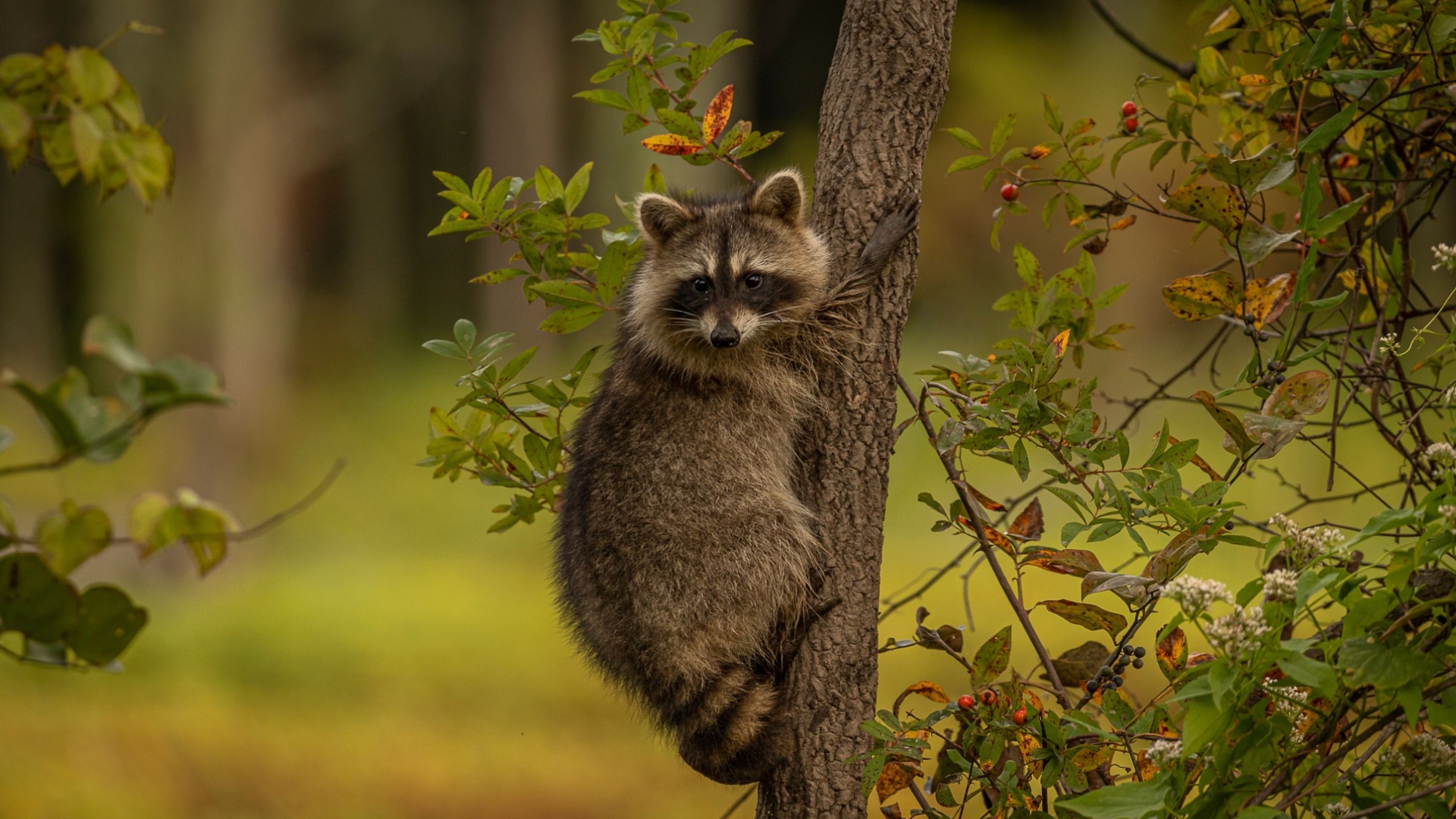
Raccoons may look like adorable masked bandits, but don’t let their fluffy tails fool you—they’re born troublemakers! These clever critters are expert escape artists, relentless food thieves, and full of mischief that can turn any home into chaos.
While they might seem like fun, their wild instincts, unpredictable behavior, and never-ending curiosity make them anything but ideal pets. From their nighttime adventures to their unexpected mess-making skills, raccoons are best left in the wild.
Here’s why these fascinating creatures aren’t meant to be housemates!
1. Nocturnal Animals
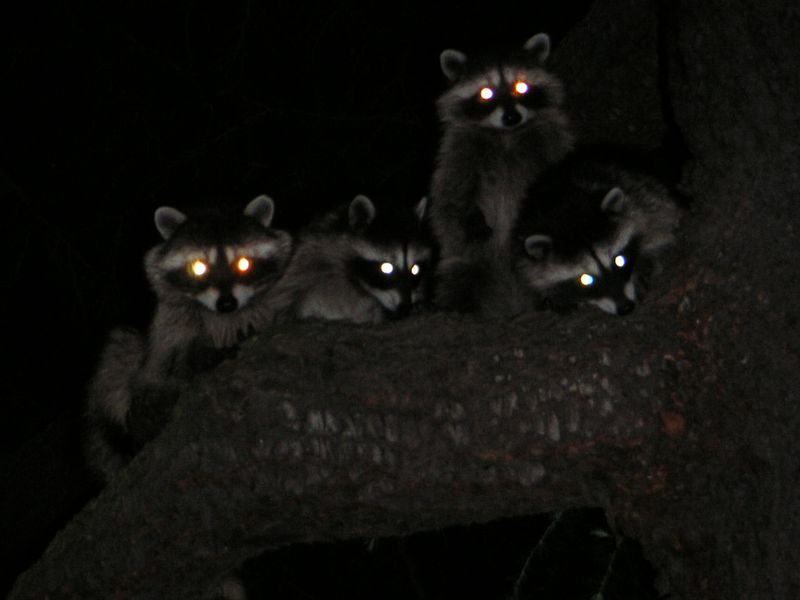
The night is a raccoon’s playground, perfect for these nocturnal creatures. When the world slumbers, raccoons awaken, ready to embark on their nightly adventures. Their sharp eyesight in low light conditions makes them efficient foragers and explorers of the night. Having a pet raccoon means dealing with their nocturnal habits, which might not align well with the average human’s sleep schedule.
Imagine being woken up at 3 am by a curious raccoon rummaging through your kitchen cabinets. These masked explorers are incredibly active during the night hours, which can be quite disruptive. Their nocturnal nature isn’t just a quirky trait – it’s an ingrained behavior that’s challenging to change. Adjusting to the lifestyle of a raccoon requires patience and a willingness to embrace sleepless nights.
If you’re not a night owl, accommodating a raccoon’s nocturnal schedule can quickly become a daunting task. Keeping these creatures entertained during their peak activity hours is essential but not always practical for pet owners.
2. Raccoons Have Sharp Claws
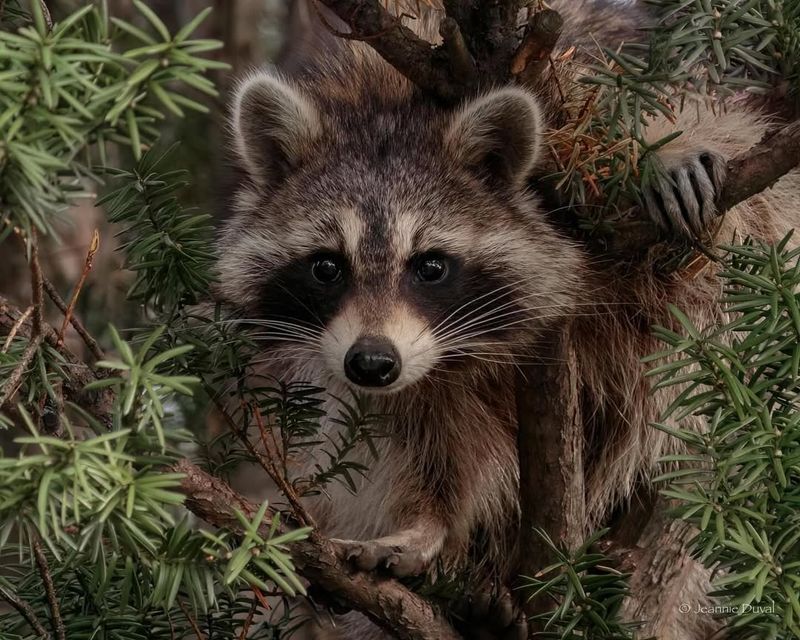
Raccoons come equipped with very sharp claws, nature’s tool for climbing and digging. These claws, while perfect for their survival in the wild, prove challenging indoors. Imagine your furniture, walls, and anything within reach falling victim to these natural daggers. These claws allow raccoons to climb with ease, whether it’s a tree in the forest or a curtain in your living room.
The damage potential is significant, from scratched surfaces to torn fabrics. In a domestic setting, these claws can become a constant source of stress for any potential raccoon owner. Beyond damage to property, the claws pose a risk to humans and other pets.
Accidental scratches can happen easily during play, and handling a raccoon requires vigilance to avoid injury. The natural instincts of a raccoon are not suited for domestic living, as their claws are essential tools for their wild adventures.
3. Extremely Curious
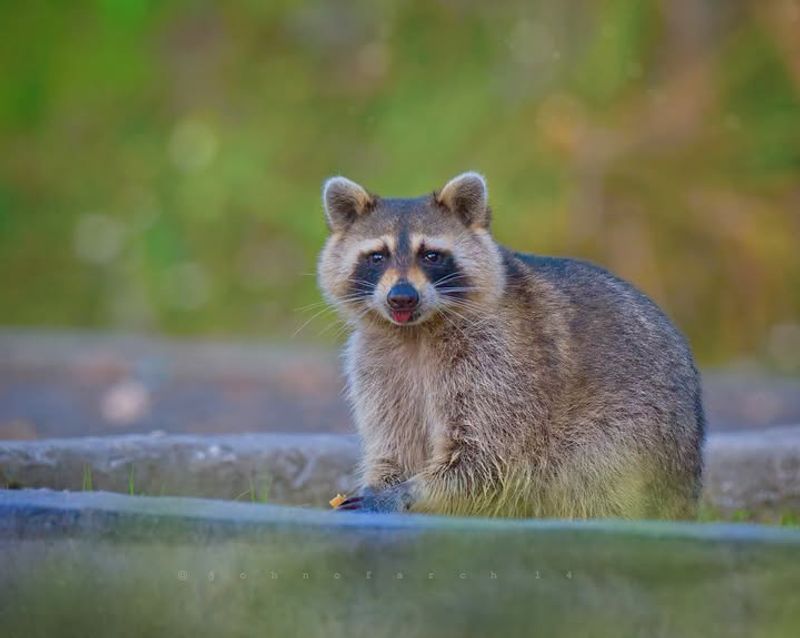
These creatures are notorious for their inquisitive nature, always on the hunt for the next interesting item to investigate. Their curiosity makes them keen problem solvers, but it also means your home is a potential playground. Anything that catches a raccoon’s attention is fair game.
From opening cabinets to unraveling toilet paper, their curiosity knows no bounds. This behavior can lead to constant messes and the need for extensive raccoon-proofing in your home. Living with a raccoon involves embracing unexpected surprises and potential chaos.
Their investigative nature means they’re never bored, but it can be exhausting for a pet owner to keep up. A raccoon’s relentless curiosity is a testament to their wild spirit, which isn’t easily contained within four walls.
4. Strong Sense of Smell
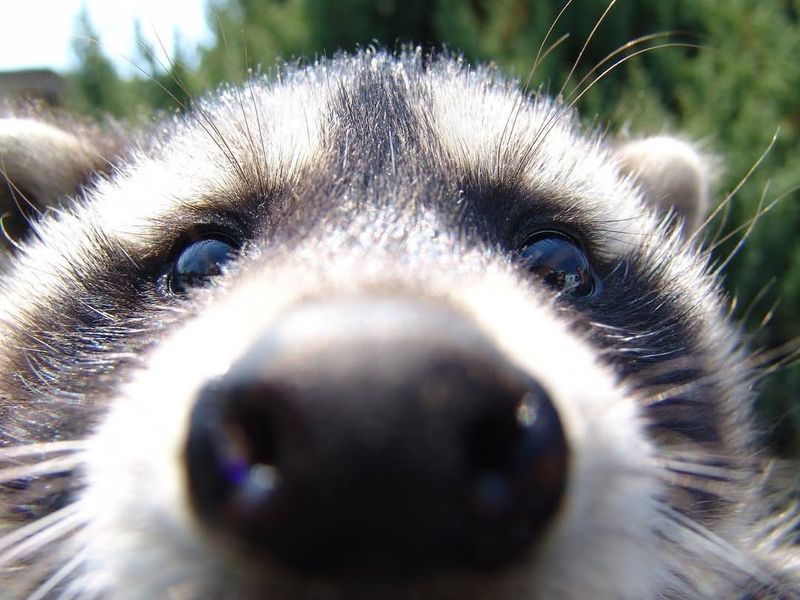
Raccoons possess an acute sense of smell, which helps them locate food and navigate their environment. This powerful olfactory ability is essential in the wild but can become problematic at home. Imagine a raccoon following its nose to your pantry or garbage bin, leading to chaos. With their strong sense of smell, raccoons are adept at sniffing out the tiniest morsels.
This trait can lead them to places you might not want them exploring, resulting in frequent clean-ups. Protecting food and odors from a raccoon becomes a constant task. While their sense of smell assists them in surviving in the wild, it can be a nuisance indoors.
The constant foraging and investigation driven by their noses can frustrate even the most patient pet owner. A raccoon’s nose is a powerful tool that guides their actions, often at odds with domestic harmony.
5. Raccoons are Known for Dexterity
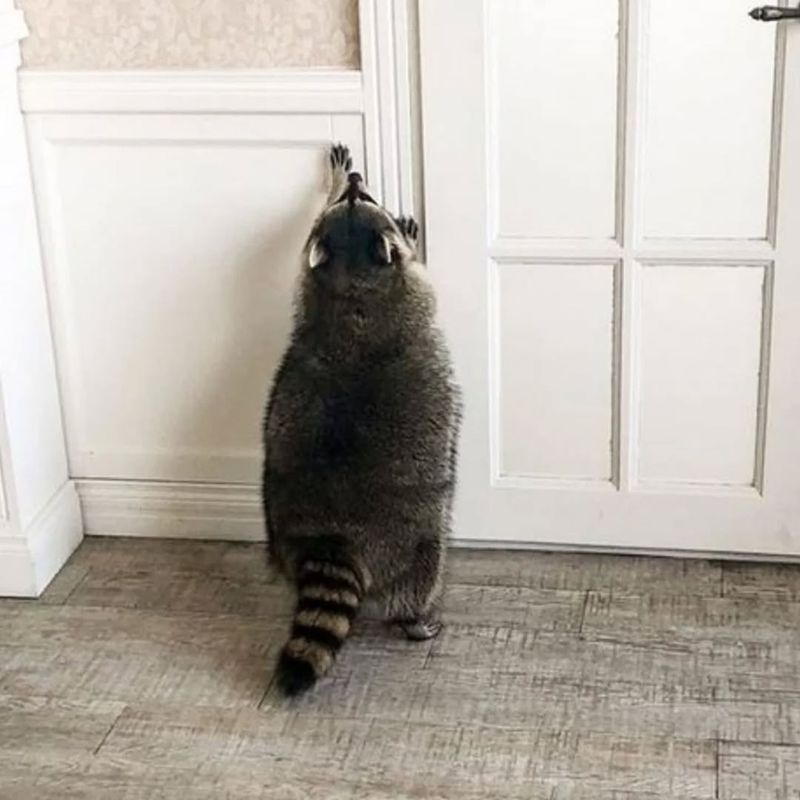
Raccoons are the acrobats of the animal world, possessing incredible dexterity that allows them to manipulate objects with ease. Their nimble fingers can open jars, doors, and even locks, posing a real challenge in a household setting. Imagine coming home to find your cabinets emptied or your belongings rearranged.
This level of dexterity isn’t just impressive – it’s indicative of an animal that’s difficult to contain. Raccoons’ clever hands are tools for survival, but they can mean trouble as pets. Their dexterous nature means raccoons require constant supervision.
Keeping them entertained and out of mischief demands effort and creativity. While their skills are remarkable, they highlight the difficulty of adapting these wild creatures to domestic life.
6. Territorial Creatures
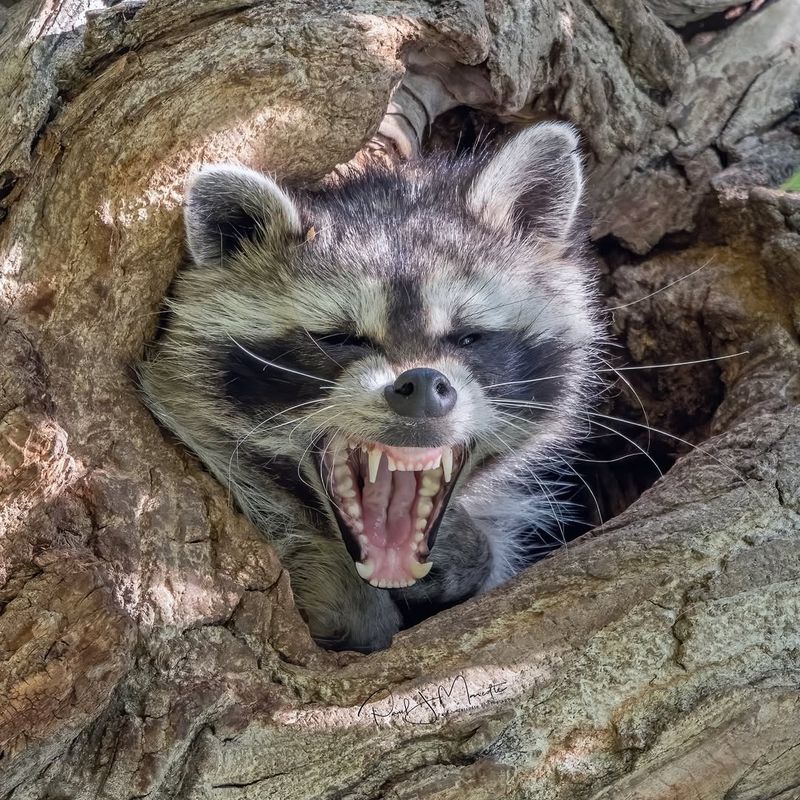
Territoriality is a hallmark of raccoon behavior, and they fiercely defend their domain. In the wild, this means claiming areas for foraging and nesting. As pets, this territorial nature can lead to aggressive behavior and challenges with other animals.
Raccoons may perceive household pets or visiting animals as threats, leading to conflict. Their need to assert dominance can result in territorial disputes, making it difficult for them to coexist peacefully with others. For potential pet owners, understanding a raccoon’s territorial instincts is crucial.
Providing adequate space and minimizing stressors is important, but such measures often fall short. Their wild nature doesn’t easily conform to domestic environments, where sharing space is a necessity.
7. Raccoons Can Transmit Diseases
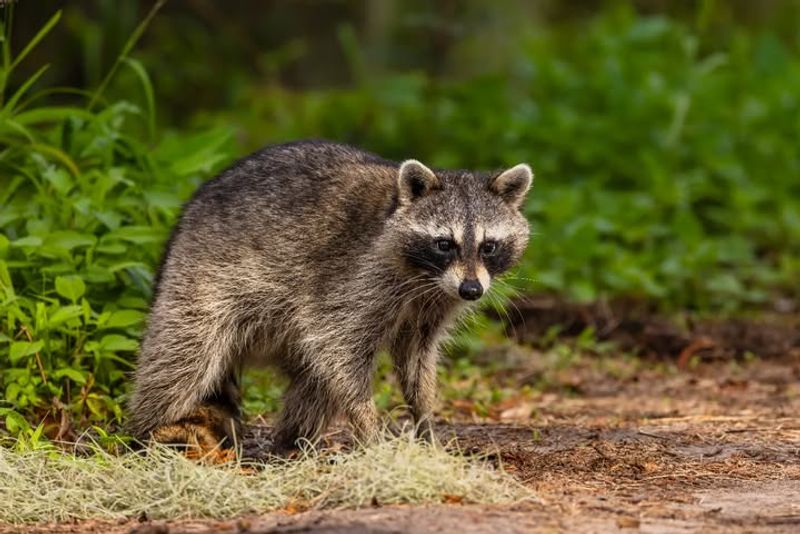
Raccoons are known carriers of various diseases, including rabies and raccoon roundworms. While they may appear healthy, these illnesses pose significant risks to humans and pets. The potential for transmission makes them unsuitable as household pets.
Handling a raccoon involves risks associated with bites, scratches, and exposure to pathogens. Vaccinating and maintaining their health is challenging, particularly with zoonotic diseases that can jump from animals to humans. Owners must be vigilant and proactive in ensuring safety, but even with precautions, the health risks remain.
The diseases carried by raccoons are serious, underscoring the importance of leaving these animals in their natural habitats, where they pose less risk to humans.
8. Raccoons Need Specialized Diets
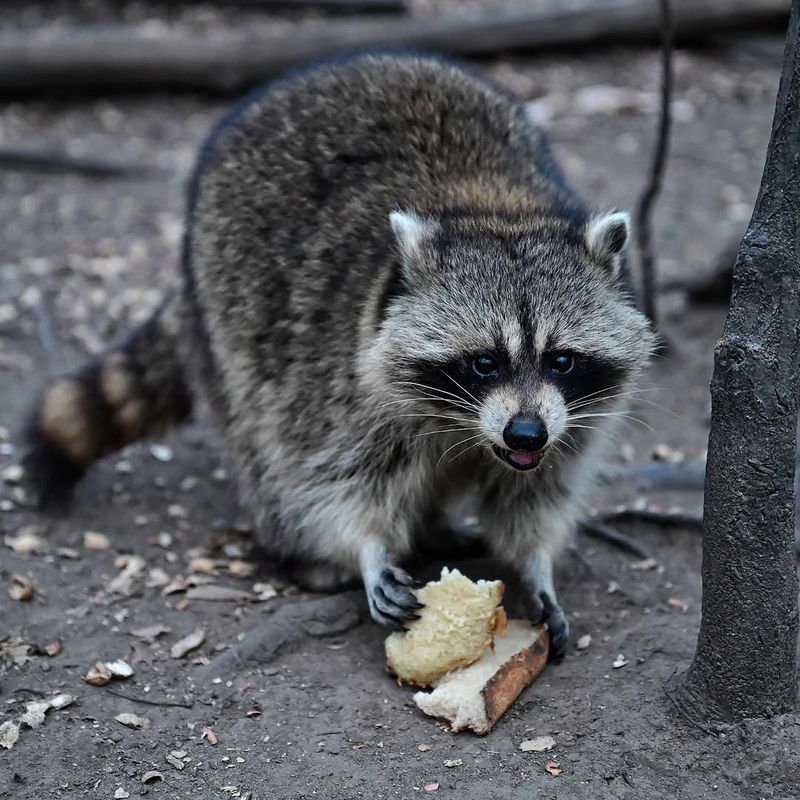
Feeding a raccoon is not as simple as filling a bowl with kibble. These omnivores have varied dietary needs, requiring a balance of fruits, vegetables, and proteins to stay healthy. Meeting these nutritional requirements can prove cumbersome for pet owners. Unlike dogs or cats, raccoons’ diets in the wild are diverse and ever-changing.
Replicating this in a domestic setting involves time, effort, and often specialized knowledge. Providing the necessary variety can be both expensive and challenging. Raccoons also have a tendency to overeat, leading to obesity if not carefully monitored.
Balancing their diet while considering their health needs is a demanding task, highlighting yet another reason why raccoons are best suited to the wild, where they naturally find what they need.
9. Escape Artists
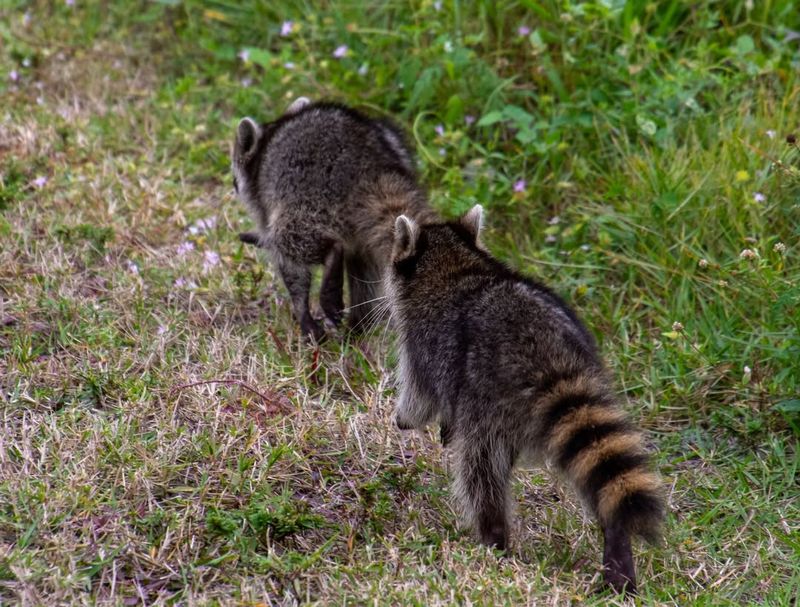
Known for their ability to escape confinement, raccoons present a unique challenge when it comes to keeping them contained. Their intelligence and dexterity make them masters at opening cages, doors, and any barriers they encounter.
This escape artist nature isn’t just a party trick – it’s a survival skill. In the wild, it helps them evade predators and find food. In a home, it means constantly reinforcing enclosures and monitoring their movements. Keeping a raccoon requires vigilance and an understanding that their urge to roam is ever-present.
Even the most secure containment solutions can fall prey to a raccoon’s ingenuity, making them a challenging pet to manage.
10. Raccoons Have Social Structures
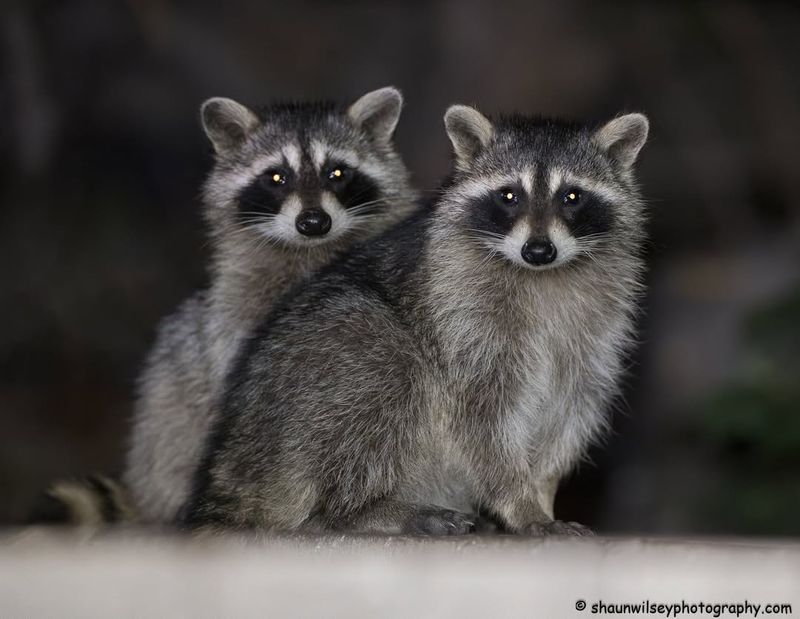
Raccoons are social creatures, often living in groups called nurseries or male social groups. This social structure supports their survival and emotional well-being in the wild. As pets, their need for social interaction can be difficult to fulfill. Without the companionship of other raccoons, they may become lonely or stressed.
This can lead to behavioral issues, including aggression or depression. Simulating their natural social environment is challenging in a household setting. For potential pet owners, understanding a raccoon’s social needs is crucial.
Providing adequate interaction and stimulation may require more time and effort than anticipated. Their social nature highlights another aspect of their wild disposition, at odds with domestic life.
11. Natural Climbers
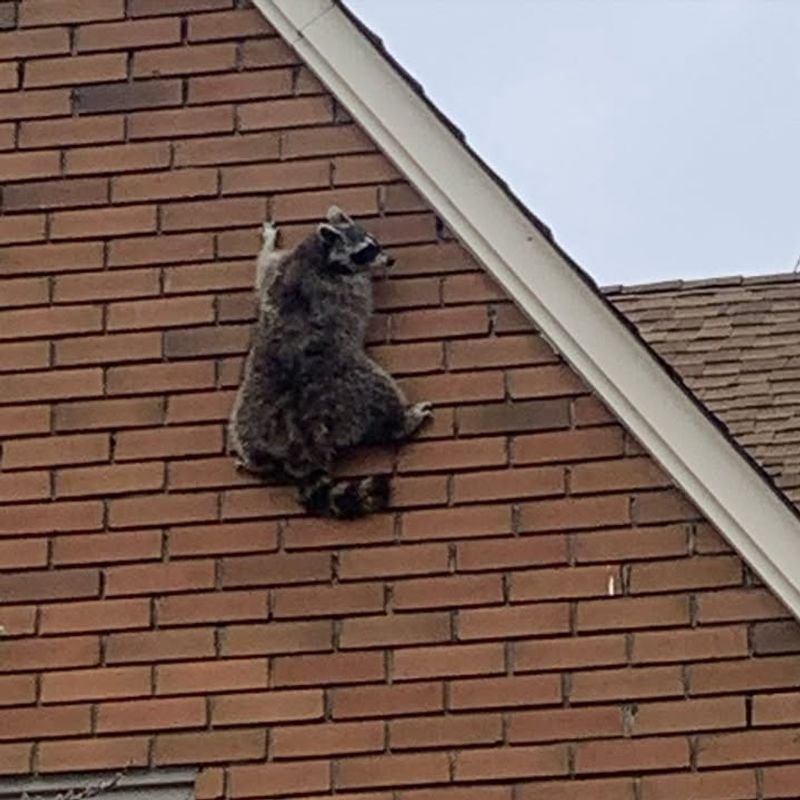
Scaling trees and navigating high places come naturally to raccoons. Their skills as climbers are impressive and serve them well in the wild. In a home, however, this means anything elevated becomes an attraction. Raccoons use their climbing ability to escape, explore, and forage, making them difficult to contain.
Their natural instinct for climbing poses risks indoors, from toppling furniture to accessing dangerous areas like rooftops. The challenge of accommodating a raccoon’s climbing instincts indoors can be overwhelming.
While their agility is a testament to their wild heritage, it serves as a reminder that domestic settings are not ideally suited to these natural climbers.
12. Raccoons Exhibit Seasonal Behaviors
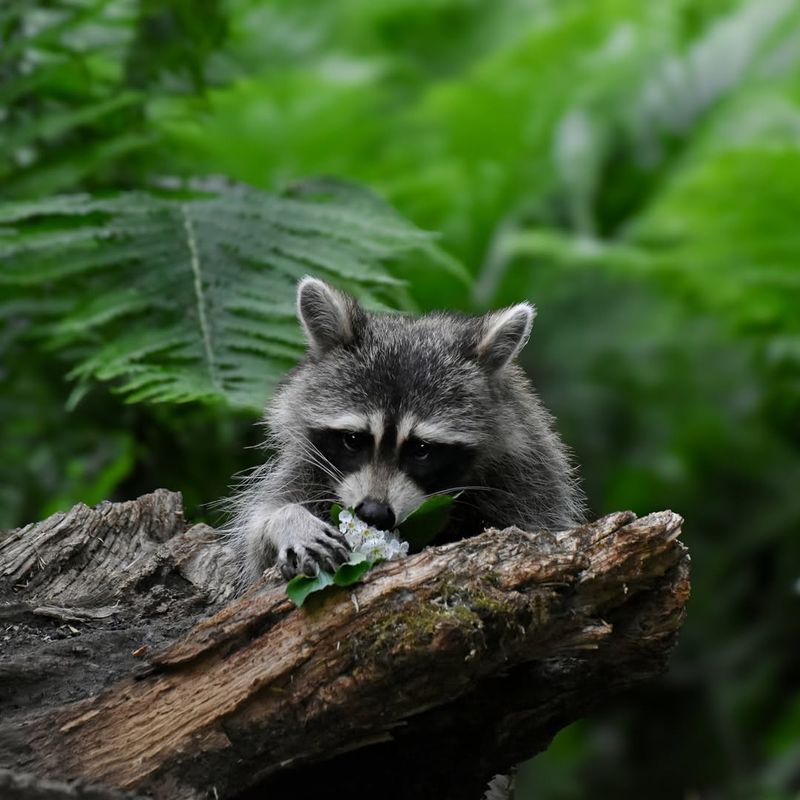
Raccoons, like many wild animals, have behaviors tied to the seasons. Whether it’s storing food for winter or shedding fur for summer, these seasonal rhythms are ingrained in their biology.
These behaviors can be disruptive in a domestic setting. A raccoon’s instinct to hoard food might lead to hidden stashes around your home, while seasonal fur shedding can create additional cleaning. Understanding and accommodating these natural cycles is part of raccoon care, but challenging to manage.
Their seasonal behaviors are another indication of their wild nature, not easily adapted to a life indoors.
13. Raccoons Require Large Spaces
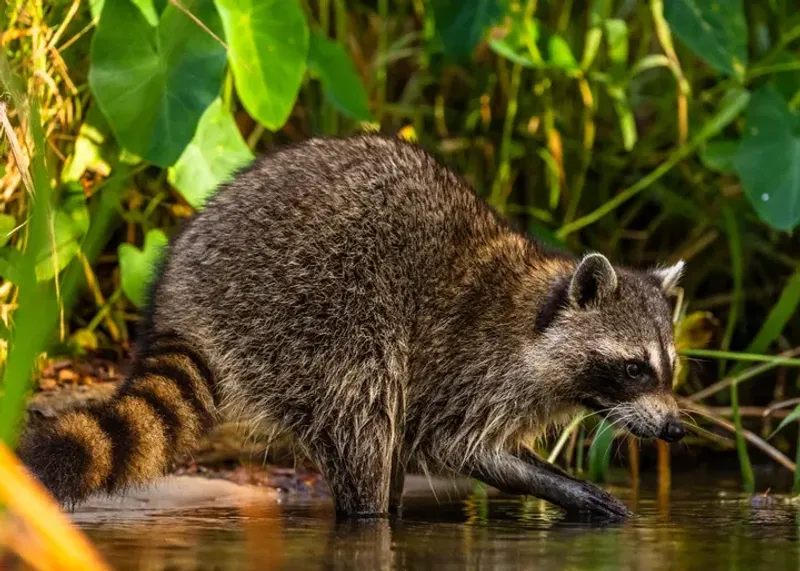
In the wild, raccoons roam over large territories, seeking food, shelter, and mates. This need for space translates poorly to domestic environments, where confinement is often necessary.
Providing a raccoon with ample space to explore and express natural behaviors is difficult indoors. Small enclosures or limited living areas can lead to stress and behavioral issues. For potential raccoon owners, understanding the spatial needs of these animals is crucial.
Ensuring they have enough room to thrive involves more than just physical space – it requires a commitment to enriching their environment, something not easily achieved within a home setting.
14. Long Lifespans
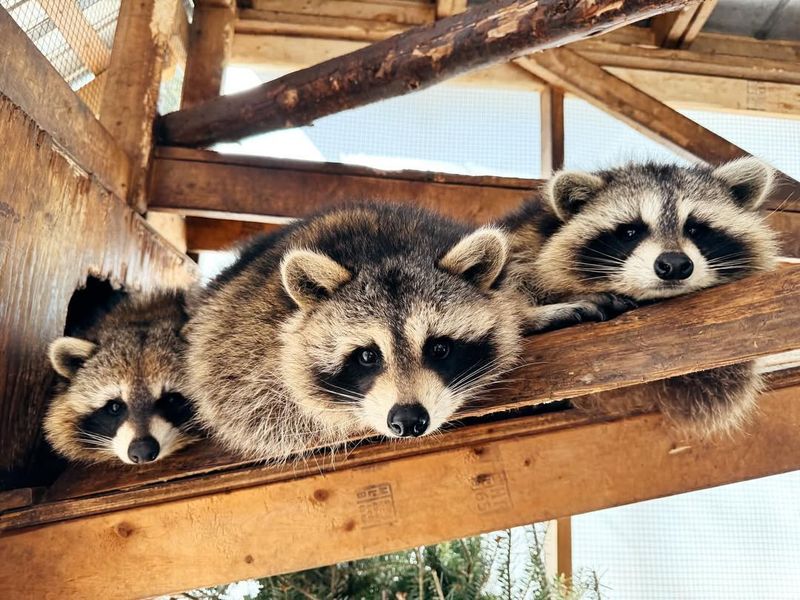
Raccoons can live up to 20 years in captivity, a long commitment for any pet owner. This extended lifespan requires careful consideration, as their care needs will evolve over time. As they age, raccoons may face health challenges, requiring veterinary care and attention.
Their long life also means a sustained commitment to their dietary, social, and environmental needs. For those considering a raccoon as a pet, understanding the long-term responsibilities is vital.
The commitment extends beyond the novelty of owning an exotic animal, demanding a lifetime of care and dedication.
15. Intelligent Problem Solvers
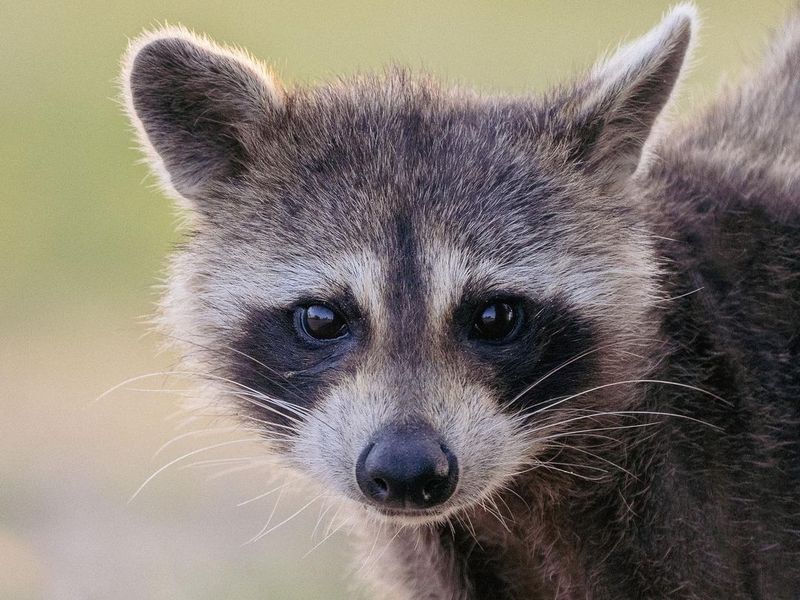
Raccoons possess remarkable intelligence, often compared to that of primates. This cognitive ability enables them to solve complex problems and adapt to various environments. While fascinating, this intelligence can be a double-edged sword as pets.
Their ability to think and reason means they can quickly become bored, leading to destructive behavior. Keeping a raccoon mentally stimulated requires continuous effort and innovation. Owning a raccoon involves more than just meeting physical needs.
Their intellectual demands necessitate engaging activities, puzzles, and challenges. This aspect of raccoon care underscores their unsuitability as pets, as few domestic settings can fully cater to their cognitive capabilities.
